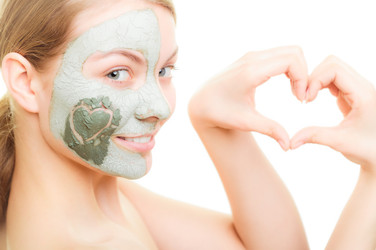Top Natural Ways to Improve Your Skin Health
Posted by Kylie Shaw on 20th Nov 2023
Maintaining healthy skin doesn’t have to be difficult! By practicing holistic skincare methods and making smart lifestyle choices, you can bring out your natural radiance. To help reveal glowing skin that lasts, here are the best natural ways to achieve beautiful results.
Start by nourishing your body from within. Eating antioxidant-rich foods like organic fruits and vegetables provides essential vitamins and minerals needed for overall health, which includes healthier-looking skin! Staying well hydrated is key to maintaining softness, while getting plenty of sleep helps refresh tired cells so they don’t look dull or dry. Finally, always practice safe sun exposure with SPF products, as UV rays break down collagen fibres, leading to wrinkles over time, which is not something we want! With these tips combined, you’ll soon realise what it takes to achieve an impeccable complexion full of vitality!
Key Takeaways
- Incorporate antioxidant-rich foods, stay hydrated, and embrace healthy fats for a glowing complexion.
- Reduce stress with self-care techniques, opt for natural or, where possible, organic products, and limit alcohol intake to achieve clear and radiant skin.
Incorporate Antioxidant-Rich Foods

Eating healthy and including the right kinds of food in your diet can significantly impact the health and appearance of your skin. Fruits such as organic berries, organic oranges, and organic kiwis contain plenty of antioxidants that protect from free radicals while providing essential vitamins and minerals to promote an even-toned complexion. Greens like organic spinach or organic kale are also beneficial for improving one’s natural glow, plus whole grains should not be overlooked either. Supergreens are an excellent substitute for conveniently giving your body the essential nutrients it needs. Nuts such as raw almonds or activated almonds offer fatty acids, enhancing long-term results when nourishing healthy skin.
Incorporating antioxidant-rich options into meals doesn’t need to be mundane. Try adding these ingredients with creativity for flavourful dishes full of nutrition benefits!
Stay Hydrated for Healthy Skin
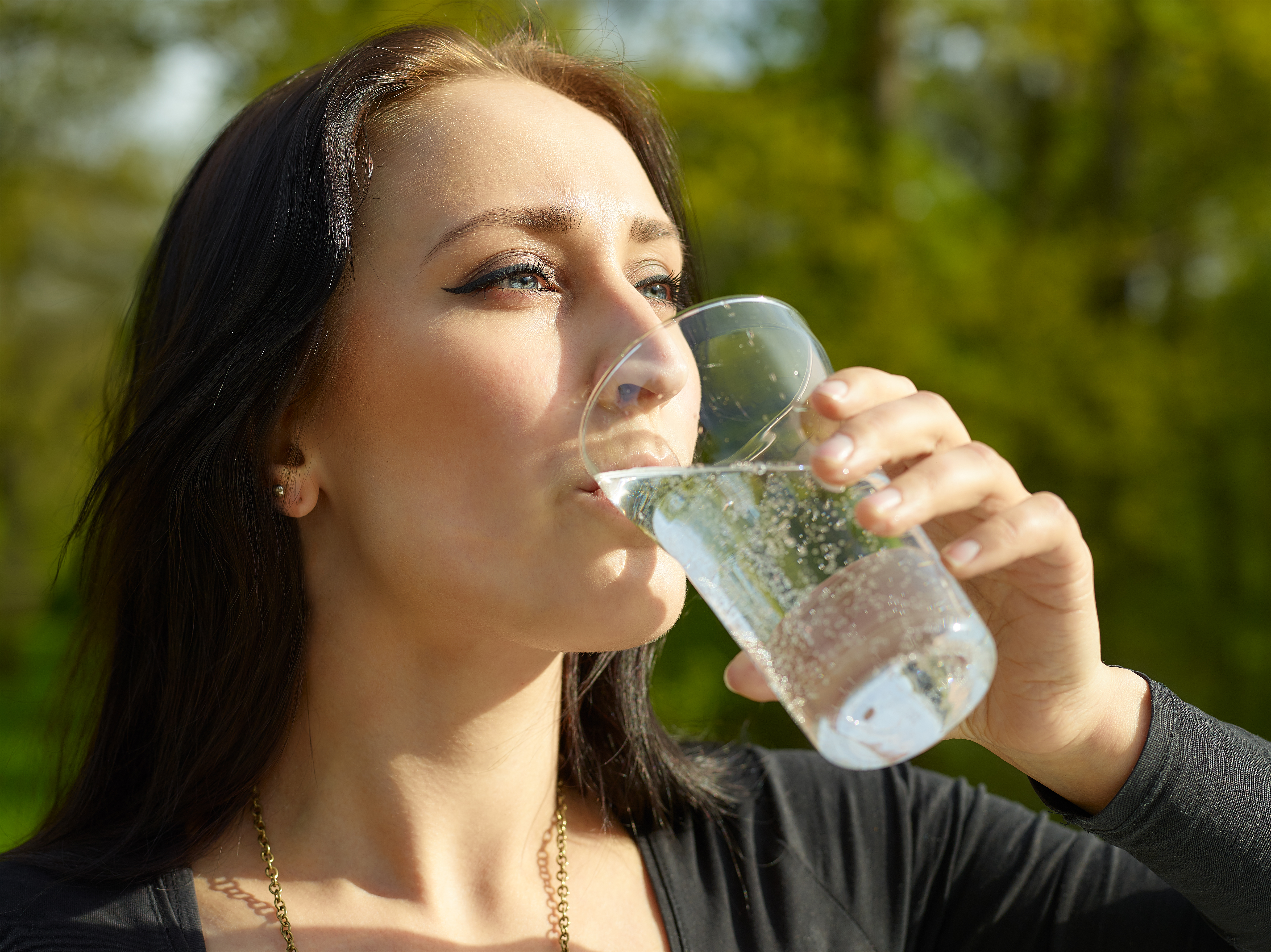
Maintaining healthy skin requires sufficient hydration, so drinking at least 6–8 glasses of water is recommended daily. We recommend using filtered water to remove many of those unwanted extras. This promotes strong, supple, and vibrant-looking skin by helping the condition of individual skin cells while preventing dry skin. To optimise your skincare regimen, include organic fruits and vegetables with high water content, like organic cucumbers or organic spinach. Use moisture-sealing agents such as moisturisers that contain humectants, occlusive agents, or emollients. Opt for gentle cleansers instead of harsh soaps. Remember: having well-hydrated skin goes a long way towards maintaining radiant, glowing skin on the surface and beyond! Beauty is not skin deep after all.
Embrace Healthy Fats
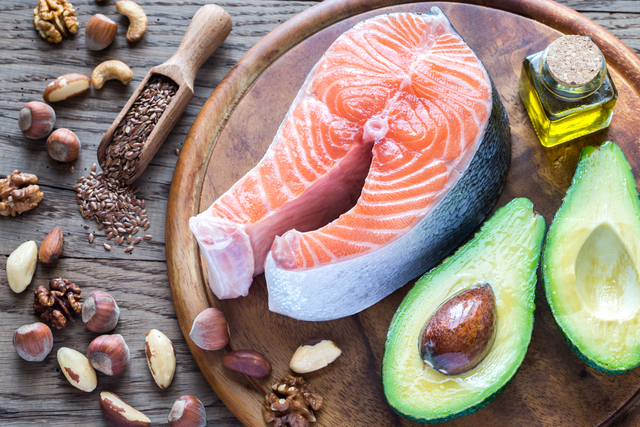
Healthy fats are an essential part of a healthy diet and contribute to well-hydrated, supple skin. Dietary sources include avocados, oily fish like salmon and trout, nuts, and seeds, which all nourish the complexion while potentially reducing the risk of skin cancer and other skin diseases. To help protect your body from disease-causing invaders, they can help improve one’s radiant face, with omega-3 fatty acids found in organic flaxseed oil or organic walnuts, for example, playing an important role here. Incorporate delicious choices, such as sardines, into your meals regularly to get enough beneficial nutrients for healthier-looking skin overall!
Prioritise Sleep for Skin Health

Skin health is greatly improved by getting a good night’s sleep. As you rest, your body works to repair and rejuvenate dead skin cells, giving you an invigorated complexion that glows. To keep your skin healthy, strive for 8 hours of sleep per evening. Focusing on maintaining regular sleeping habits and eating balanced meals supports the production of collagen, which helps keep wrinkles away so that youthful suppleness remains in your skin. If you have difficulty sleeping, you might find solace with sleep sprays, sleep teas, or using a melatonin lotion.
Protect Your Skin from Sun Damage
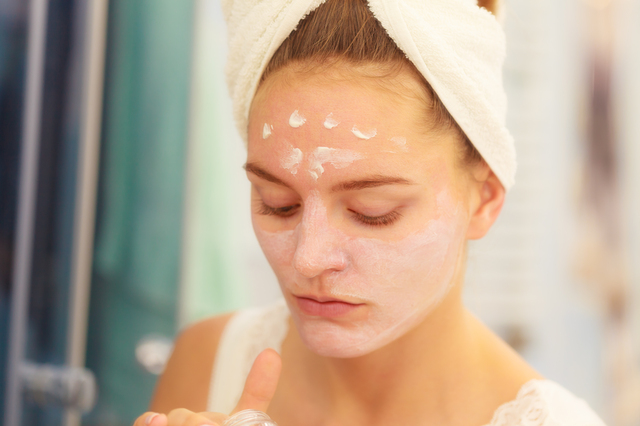
Protecting your skin from the damaging effects of UV rays is essential to maintaining healthy skin and avoiding premature aging. Applying a natural or organic sunscreen with an SPF rating of at least 30 daily is advised to shield your complexion and minimize irritation. Protective apparel such as wide-brimmed hats, sunglasses,long sleeves and other protective clothing should be worn outdoors to protect against the sun's ultraviolet rays. Remember that preventing these detrimental consequences is much more beneficial than trying to repair them. Integrating safe measures into daily routines can keep skin cells healthy and you looking bright and young.
Maintain a Balanced Skincare Routine
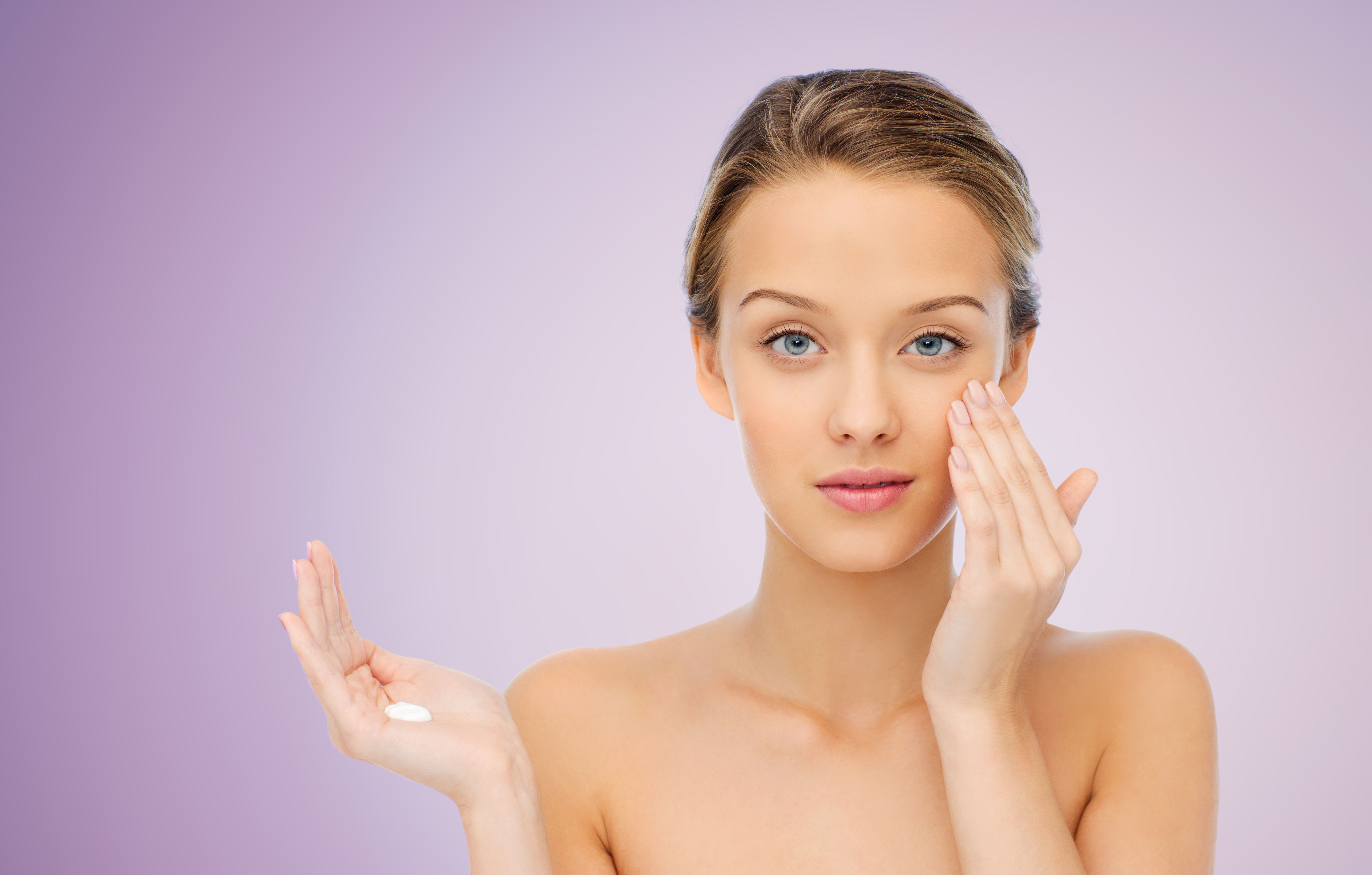
A balanced skincare regimen is the key to keeping your skin healthy, supple, and radiant. Following gentle cleansers to remove impurities and makeup, use an emollient moisturiser to maintain the skin's hydration. Incorporating exfoliation into your regime is recommended, as regular use will improve texture while removing dead cells from the surface. which will contribute to healthy glowing skin.
Maintaining such a process over time can assist you in achieving an optimally glowing skin complexion since dirt buildup has no chance against frequent cleansing. Also, dryness won’t be allowed because daily nourishment helps keep everything well-hydrated, so overall health prevails on each layer of our biggest organ, the skin!
Reduce Stress for Clearer Skin

Due to increased sebum production and breakouts, stress can significantly impact your skin's health. To maintain healthy skin and promote clarity, it is essential to practice effective methods of managing stress levels, such as meditation or yoga. Taking the time for self-care activities that relax your mind will make you feel better and keep your skin supple and your complexion looking great! By reducing tension with relaxation techniques like deep breathing exercises, you are protecting yourself physically and mentally while benefiting from smoother, healthier-looking skin.
Opt for Natural Skincare Products
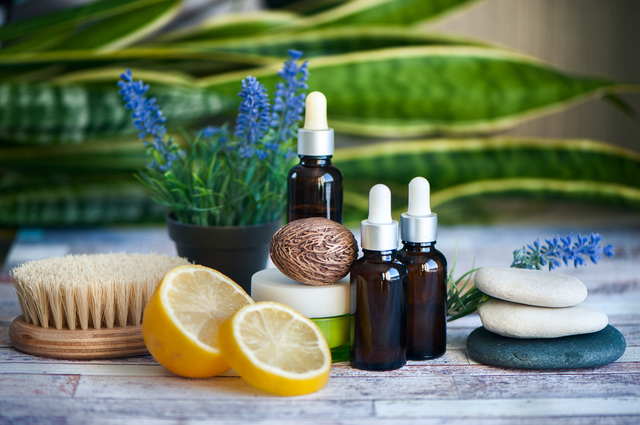
Natural and organic ingredients are a great way to care for and nourish your skin without exposing it to harmful chemicals. Some of the best skincare items are aloe vera. turmeric powder, honey, and all-natural oils that can be used to revive tired dry skin. Aloe vera calms any inflammation while providing hydration at the same time. Meanwhile, turmeric increases luminosity when applied regularly. Honey also works wonders as an emollient, trapping moisture onto the dermis, which leads to softness after each use, resulting in a smooth complexion with increased vitality! Making these regular fixtures during one’s beauty routine helps you keep your healthy glow intact, minus any damage to your epidermis, by utilising safe options like organic remedies instead of artificial products containing synthetic materials unsuitable for prolonged usage or application.
Scientific Backing for Natural Remedies
The use of natural remedies for skincare has gained increasing popularity in recent years, with individuals seeking alternative approaches to conventional skincare products. While natural remedies offer potential benefits, it is crucial to understand the scientific evidence supporting their effectiveness. This section delves into the research behind the recommended natural remedies, providing summaries of key studies, exploring their mechanisms of action, and addressing any potential limitations of the available data.
Green Tea for Skin Health
Green tea, a popular beverage renowned for its antioxidant properties, has also emerged as a promising natural remedy for skincare. Studies suggest that green tea's polyphenols, particularly epigallocatechin gallate (EGCG), exert beneficial effects on skin health.
A 2017 study published in the Journal of Dermatological Science investigated the topical application of green tea extract on human skin fibroblasts. The researchers found that green tea extract significantly enhanced the production of collagen, a protein essential for skin elasticity and firmness. Additionally, it demonstrated anti-inflammatory properties, reducing the expression of inflammatory mediators.
Another study, published in the International Journal of Molecular Sciences in 2014, explored the potential of green tea extract in protecting skin cells from UV-induced damage. The study demonstrated that green tea extract effectively inhibited the production of reactive oxygen species (ROS), harmful molecules generated by UV exposure that contribute to skin ageing and photoageing.
These studies provide evidence that green tea's bioactive compounds, particularly EGCG, offer promising benefits for skin health, including antioxidant, anti-inflammatory, and photoprotective effects. However, further research is warranted to fully elucidate the mechanisms of action and long-term efficacy of green tea extract in skincare.
Honey for Skin Healing
Honey, a natural substance produced by bees, has long been recognised for its antibacterial and wound-healing properties. In recent years, scientific research has further supported these traditional claims, providing evidence for honey's potential as a natural remedy for skincare.
A 2016 study published in the Journal of Wound Care evaluated the effectiveness of topical honey application in promoting wound healing. The study compared the healing rates of wounds treated with honey to those treated with conventional wound dressings. The results demonstrated that honey-treated wounds healed significantly faster than those treated with conventional dressings, exhibiting reduced inflammation and enhanced tissue regeneration.
Another study, published in the International Journal of Dermatology in 2011, investigated the antibacterial properties of honey against various skin pathogens. The study found that honey effectively inhibited the growth of common skin bacteria, including Staphylococcus aureus and Streptococcus pyogenes. This suggests that honey could potentially aid in the treatment of skin infections.
These studies provide scientific backing for honey's traditional use in wound healing and its antibacterial properties. Further research is needed to fully explore the potential of honey as a natural remedy for various skin conditions, such as acne and eczema.
Incorporate Regular Exercise

Incorporating physical activities, such as walking, jogging, or yoga, into your routine can work wonders for the health of your skin. In addition to these exercises, there are others like dancing, cycling, and boxing, which have been shown to improve circulation and digestion, leading to a noticeable healthy glow in both the appearance and overall wellness of one’s skin. Exercise immensely benefits general well-being and stimulates increased natural radiance from within our bodies.
Limit Alcohol Intake and Quit Smoking

Our lifestyle choices, such as drinking and smoking habits, can have a grave effect on the quality of our skin. Cutting down on alcohol intake or quitting smoking altogether will shield you from wrinkles or reduced blood flow, which causes skin exhaustion. Taking these steps keeps your overall health in check and gives rise to a healthier-looking complexion. This journey towards self-betterment begins by making conscious decisions regarding consumption levels and seeking assistance to end tobacco use; both will undoubtedly lead to more glowing results!
Boost Collagen Production with Vitamin C

Incorporating vitamin C into your diet is vital to achieving glowing and healthy skin. Vitamin C-rich foods such as organic oranges, organic sweet potatoes, and organic broccoli help promote collagen production for greater elasticity in the skin, resulting in a youthful, radiant complexion. We do have a great range of vitamin C supplements available.
By consuming these nutrient-dense organic fruits and vegetables, you may benefit from taking supplements or applying topical serums containing this powerful ingredient. Both contribute to firmness by stimulating your body’s natural collagen production while giving your face an added boost of radiance.
Practice Facial Massage Techniques

Including a facial massage in your everyday skin care regimen can effectively achieve healthier and more radiant-looking skin. Using jade rollers or gua sha tools, you can stimulate blood flow circulation, relax muscle tension, remove excess fluid through lymphatic drainage and give yourself the glow you aim for! Begin with upward strokes when massaging using these instruments over any areas of your face that feel tense or puffy. Including regular facial massage in this habit will lead to positive changes toward attaining youthful complexion goals, so why not get started today?
Avoid Processed and Sugary Foods

Processed snacks and sugary items can be detrimental to the skin’s health. Such foods lead to decreased collagen levels, promote wrinkles earlier in life, cause premature skin aging, and may create acne or inflammation issues.
Consider switching processed sugars to healthier options, such as organic coconut sugar, organic stevia, organic rapadura sugar or others listed here, if you can't quit the sugar. To maintain a healthy complexion, avoiding these dietary options and focusing on nourishing yourself with beneficial items such as organic fruits, organic vegetables, organic whole grains, and lean proteins is essential. Eating nutritiously will have positive outcomes not only concerning your overall health but also for the more radiant-looking skin that you desire!
Summary
Finally, achieving a healthy and glowing skin complexion with a holistic approach to skin care is possible. A few of the most critical measures include consuming antioxidant-rich foods, drinking enough water daily, and getting regular restful sleep while limiting exposure to sun damage through suitable protection methods. Keeping up an effective skincare regimen that uses natural products and engaging in exercise frequently should be prioritised. Reduce stress levels. Avoiding processed and sugary foods is also beneficial when trying to improve the health of your skin; plus, incorporating vitamin C into your routine can help produce collagen, which assists in having visibly beautiful-looking results, along with gentle facial massage techniques! All these steps will reward you for showing off such radiantly good health as a reflection of your overall well-being.
Frequently Asked Questions
How can I improve my skin naturally?
Taking care of your skin is a must. Every day, practice thorough cleansing, wear sunscreen and protective clothing to shield you from the harsh sun’s rays, and avoid using tanning beds. Manage stress levels by asking for help or talking it out with someone close; this could make huge strides in obtaining healthier skin naturally over time, while sufficient rest can be what your complexion needs!
How can I restore my skin quality?
To restore your skin quality, incorporate a regular skincare routine with gentle cleansing and moisturising products that contain ceramides and heparan sulphate analogs. Reduce sun exposure to protect your skin from damage while limiting sugar intake. Ensure you get enough sleep each night, combined with some form of physical exercise for added benefit. Staying hydrated will help, too!
What are some examples of antioxidant-rich foods for skin health?
Regularly consuming antioxidant-rich items such as fruits, veggies, nuts, and seeds can maintain a youthful radiant glow for your skin. These foods will help keep it looking radiant and healthy!
How much water should I drink daily for optimal skin health?
For optimal skin health, staying hydrated is vital. Aim to consume 6-8 glasses of water daily to ensure your complexion gets all the fluids it needs.
What are some healthy fats that can improve skin elasticity?
Eating foods rich in fatty acids, like avocados, oily fish (such as sardines and salmon), nuts, and seeds, can help improve skin elasticity. These items are a great source of healthy fats that play an essential role.
References:
- "Aging and Skin Health" by the National Institute on Aging (NIA) provides an overview of the effects of aging on skin health and discusses various factors that can contribute to skin aging, including sun exposure, smoking, and pollution.
- "Skin Conditions and Aging" by the NIA discusses common skin conditions that affect older adults, such as wrinkles, dry skin, and age spots. The article also provides information on how to prevent and manage these conditions.
- "Nutrition and Skin Health" by the NIA discusses the role of nutrition in maintaining healthy skin. The article provides information on the importance of vitamins, minerals, and antioxidants for skin health.
https://www.ncbi.nlm.nih.gov/pmc/articles/PMC3583891/
- "Sunscreen and Skin Health" by the NIA provides information on the importance of sunscreen in protecting skin from the sun's harmful ultraviolet (UV) rays. The article also discusses how to choose and use sunscreen correctly.
https://www.ncbi.nlm.nih.gov/pmc/articles/PMC8361399/
- "Healthy Habits for Skin Health" by the NIA provides a list of healthy habits that can help you maintain healthy skin, such as eating a healthy diet, getting regular exercise, and managing stress.
https://www.nia.nih.gov/health/skin-care
- "Skin care basics" by the American Academy of Dermatology (AAD) provides a comprehensive guide to basic skincare practices, including cleansing, moisturizing, and sun protection.
https://www.aad.org/public/everyday-care/skin-care-basics
- "Skin care secrets" by the AAD offers tips for maintaining healthy skin, such as using gentle cleansers, avoiding harsh soaps, and moisturizing regularly.
https://www.aad.org/public/everyday-care/skin-care-secrets
- "Everyday care for sensitive skin" by the AAD provides specific recommendations for caring for sensitive skin, such as avoiding fragrances and using lukewarm water for washing.
https://www.aad.org/public/everyday-care/skin-care-secrets
- "Skin care for men" by the AAD offers tailored advice for men's skin care, including how to shave without irritation and how to protect the skin from the sun.
https://www.aad.org/public/everyday-care/skin-care-secrets
- "Skin care for women" by the AAD provides specific recommendations for women's skin care, such as how to address acne and how to care for aging skin.

